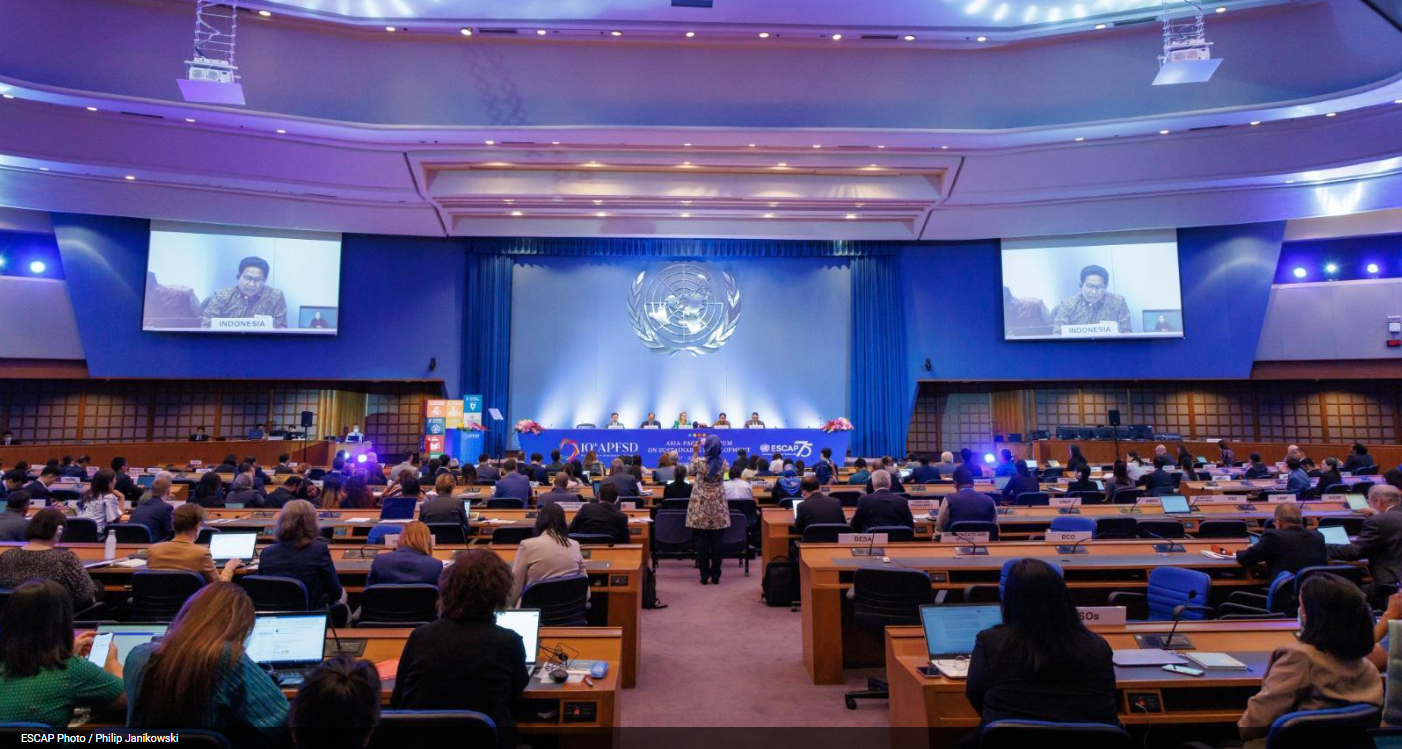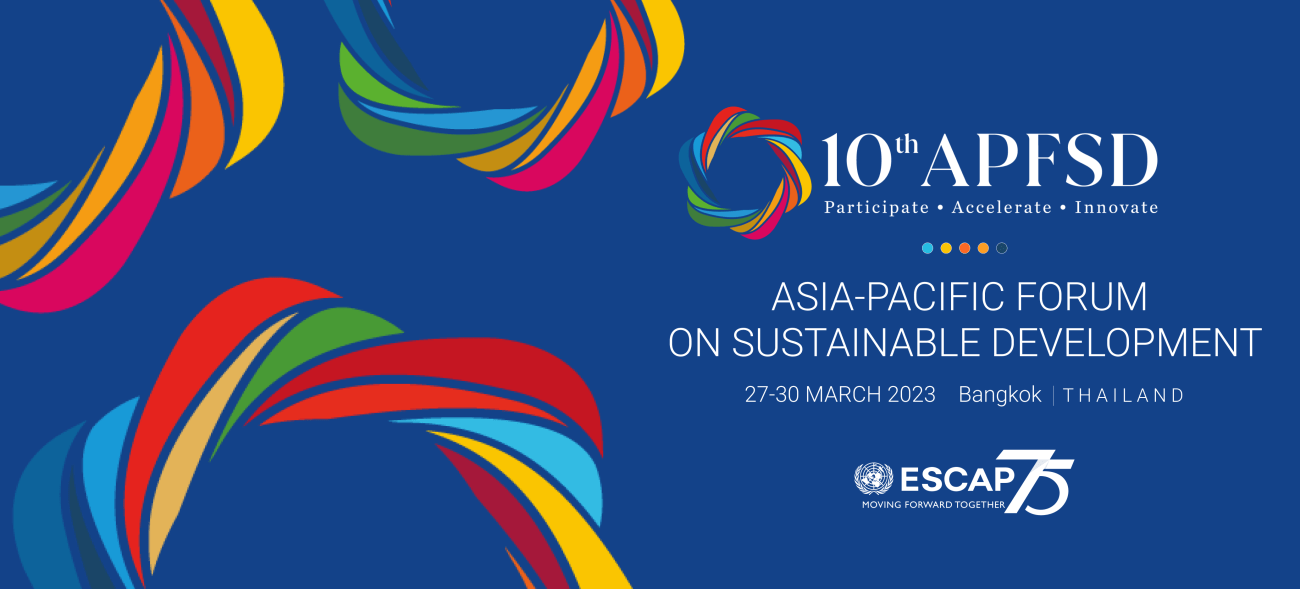Regional UN forum urges countries to rescue the Sustainable Development Goals amidst compounding crises

Never before have development gains in Asia and the Pacific been at such risk of being swept away by overlapping and intensifying crises. The Tenth Asia-Pacific Forum on Sustainable Development (APFSD) opened today in Bangkok with a resounding call for countries to make radical changes at the midpoint of the 2030 Agenda or risk evaporating their slim chances of achieving the Sustainable Development Goals (SDGs).
Organized by the United Nations Economic and Social Commission for Asia and the Pacific (ESCAP) from 27 to 30 March, the Forum brings together a cross-section of key development actors, including senior government and UN officials, the private sector, youth and civil society representatives to share their experiences and mobilize regional action to rescue the SDGs.
“The data reveals a story that vulnerable people across the world know only too well: we are badly off track. There is reason for alarm – but I would like to emphasize that there is also reason for hope. Delivering on the promise of the SDGs is possible – and essential,” said United Nations Deputy Secretary-General Amina J. Mohammed in her opening address.
“It is the lack of progress on the SDGs that left us with punishing consequences of a riskier world,” said Armida Salsiah Alisjahbana, UN Under-Secretary-General and Executive Secretary of ESCAP. She added, “To emerge from these depths, we simply have to go to where it all started: Protecting our people, especially those furthest behind, ensuring gender equality, shock-proofing our economies, and preserving our planet. These all lie at the very core of the 2030 Agenda.”
In the Asia-Pacific region, the cost-of-living crisis has deprived 400 million people of safe and nutritious food. Climate related catastrophes, coupled with biodiversity loss and pollution are taking lives and causing immense hardship and suffering. Food and energy prices have left governments struggling to protect their people. Fiscal space is constrained; borrowing costs are sky-high and rising; debt burdens are unsustainable.
Over the next four days, the APFSD will also undertake an in-depth review of the region’s progress on Sustainable Development Goal 6 (Clean water and sanitation); Goal 7 (Affordable and clean energy); Goal 9 (Industry. innovation, and infrastructure); Goal 11 (Sustainable cities and communities) and Goal 17 (Partnership for the Goals). Recommendations from the regional Forum will feed into the global High-Level Political Forum and SDG Summit later this year.
President of the Economic and Social Council (ECOSOC) Lachezara Stoeva urged Forum participants to be unfaltering in their assessment on the state of the SDGs in the region. “Policymakers need frank data and evidence-based diagnosis of the situation in order to develop impactful policies.”
“Halfway through the 2030 Agenda, we are still very far from our goals as the systemic barrier of giving priority to profit over people’s rights and welfare is still at play. How can we accelerate development if its drivers are left behind?” underscored Kai Ra Cabaron from the National Alliance of the Urban Poor in the Philippines (KADAMAY), representing the civil society.
Youth representative Prim Rajasurang Wongkrasaemongkol called for meaningful participation and inclusion at all levels of the decision-making process. “Give us (youth) the opportunities, platforms and resources for meaningful engagement to foster leadership, innovation and critical thinking skills.”
Also speaking at the opening were President of French Polynesia Edouard Fitch, Deputy Prime Minister and Minister of Foreign Affairs of Thailand Don Pramudwinai, and Under-Secretary-General of the United Nations Department of Economic and Social Affairs Li Junhua.
At the forum, ESCAP, the Asian Development Bank (ADB) and United Nations Development Programme (UNDP) jointly launched the latest edition of the Asia-Pacific SDG Partnership Report: Delivering on the Sustainable Development Goals through Solutions at the Energy, Food and Finance Nexus. The report points to clear solutions for confronting the multiple crises and regaining ground on the SDGs, from transforming agriculture towards climate resilience to accelerating a just energy transition and increasing the fiscal space and public investment towards the SDGs.
Since 2014, the APFSD has provided an annual and inclusive platform for countries to share regional best practices and lessons learnt, support the presentation of their voluntary national reviews, and assess progress made towards implementing the 2030 Agenda for Sustainable Development.
For further information on APFSD, visit: https://www.unescap.org/events/apfsd10
For multimedia assets: https://bit.ly/APFSD10assets

